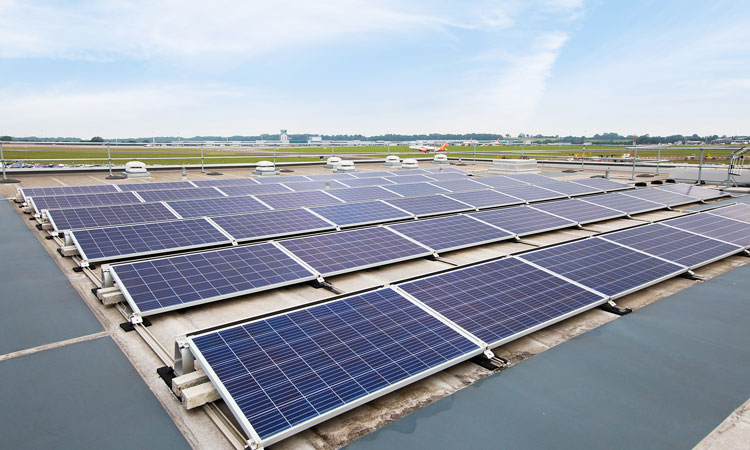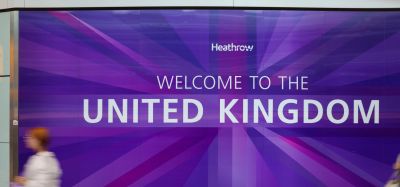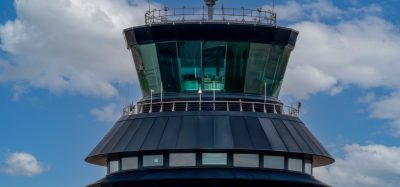The road to net zero carbon: Our most amazing journey yet
- Like
- Digg
- Del
- Tumblr
- VKontakte
- Buffer
- Love This
- Odnoklassniki
- Meneame
- Blogger
- Amazon
- Yahoo Mail
- Gmail
- AOL
- Newsvine
- HackerNews
- Evernote
- MySpace
- Mail.ru
- Viadeo
- Line
- Comments
- Yummly
- SMS
- Viber
- Telegram
- Subscribe
- Skype
- Facebook Messenger
- Kakao
- LiveJournal
- Yammer
- Edgar
- Fintel
- Mix
- Instapaper
- Copy Link
Posted: 21 April 2021 | Simon Earles | No comments yet
Simon Earles, Sustainability and Corporate Affairs Director at Bristol Airport, takes International Airport Review on a tour of the airport’s roadmap to carbon neutrality by 2025 and net zero by 2050.


Bristol Airport’s (BRS) vision is: ‘To be everyone’s favourite airport. Delivering a future that we can all be proud of’. Bristol Airport is a growing, successful international airport, serving as the UK’s south west regional gateway, providing air connectivity between the region and the rest of the world.
Air travel is a fundamental force for good, supporting business, education, inbound tourism and the socio-economic fabric of our society. The current pandemic has brought the importance of this connectivity into sharp focus. We look forward to flights returning and supporting the recovery of the South West of England and South Wales in the months ahead.
Bristol Airport’s place in history
Bristol Airport is one of the oldest airports in the UK and was originally formed in 1930. In 1939, it was requisitioned by the Air Ministry at the outbreak of World War II, handling 4,000 passengers a year. The airport remained operational during the war years. The comings and goings of statesmen, spies, film stars and others are shrouded in secrecy, but Winston Churchill and Amy Johnson certainly used the airport during this period. In 1955, a new location was needed for the city airport to meet the growing demand for air travel, so Bristol Airport moved to its current location in North Somerset and opened in 1957.
The modern day airport
Today, customers are welcomed with the promise that ‘amazing journeys start here’. It is a bold statement of intent, but one that has been backed by an ambitious programme of infrastructure development and customer enhancements in recent years, with over £225 million invested in the last 10 years alone. The number of international routes available from Bristol Airport was in single figures at the turn of the millennium; however, this rapidly increased and, in 2019, over 120 direct destinations were operated by direct flights across 30 countries, handling over nine million passengers per annum, with 1.5 million travelling into our region.
Major advances in technical improvements are being made in aviation and many airlines now operate more fuel-efficient aircraft. New generation aircraft will deliver noise and emission reductions and, with improved airport procedures – such as Continuous Descent Approaches for aircraft on arrival – which help to reduce fuel consumption. We are proud that our largest customer, easyJet, not only has one of the most modern and efficient aircraft fleet, but also now offsets all of the CO2 emissions that are associated with its flights.
The quest for carbon neutrality
Whilst working with our airlines in making reducing environmental impacts a priority, we are also focused on steps that we, as an airport, can take to decrease our carbon footprint on the ground. Bristol Airport was the first airport in Europe to offset all passenger journeys to, and from, the airport by road, commencing in January 2020. The carbon offsetting scheme forms part of the airport’s carbon roadmap undertaking to be carbon neutral by 2025 and net zero by 2050 – in line with the commitment made by the European airport industry.
Bristol Airport was the first airport in Europe to offset all passenger journeys to, and from, the airport by road, commencing in January 2020″
Bristol Airport is a proud member and signatory to the UK aviation industry’s Net Zero 2050 Roadmap and the similar commitment to Airports Council International (ACI) at a European level. This commitment by the industry to collaborate and to take ambitious steps in relation to decarbonisation demonstrates the positive role that the industry can make in supporting UK and international ambitions and targets, whist continuing to provide the connectivity needed by the regions that are served.
Over a decade of transformational change has taken place at Bristol Airport, and data shows that, whilst passenger numbers continued to increase, the number of flights in 2019 was below the number of aircraft movements in 2008. During the same period, the airport actively worked towards improvements in reducing its environmental footprint, including reducing the CO2 emissions that were emitted per passenger and reducing waste, with zero waste going into landfill and waste recycling increasing. As a result of this, CO2 emissions at the airport reduced from 1.2kg per passenger in 2008 to 0.62kg per passenger in 2019.
Flying local reduces emissions
In 2018, Bristol Airport commissioned a study which concluded that, if passengers from the South West of England used Bristol Airport instead of London airports, it would save an estimated 157,000 tonnes in carbon emissions. This is equivalent to more than 15 million gallons of petrol, or similar to the amount generated by charging 17.7 billion smartphones or powering a 42” LCD TV for over 94,000 years! The study highlights the positive impact that ‘flying local’ can have.
The future looks green
As the aviation industry looks beyond the COVID-19 pandemic, it is imperative that all regions of the country have sufficient infrastructure to build back better in a more sustainable way. Bristol Airport has taken this challenge and is aiming higher. We are currently taking exciting plans through the planning system to enable the airport to continue to support the South West of England and South Wales to 2030.
Bristol Airport is proud to be working with many key stakeholders in the South West of England on ambitious projects to reduce carbon. The airport is part of a consortium of regional businesses which have progressed a bid under the Local Industrial Strategy Grand Challenge for Future Flight funding to bring innovative alternative fuel flight operations to the South West of England. Bristol has been directly involved in obtaining funding with the West of England Combined Authority (WECA) to decarbonise regional transport, including the introduction of on-demand bus services.
Whilst we are proud of our sustainability journey, we recognise that there is more to do. Looking to the future, Bristol Airport is working with the aviation industry in the region to ensure that it becomes a global centre for clean aviation growth, and re-visiting our own ambition when it comes to climate change. This will require another decade of transformation in what we have described as ‘our most amazing journey yet’, but one that we can achieve together.


Earles has almost 20 years’ experience in the aviation sector, working previously at Heathrow and London Luton Airports and, before that, in local government and consultancy. He is a qualified transport planner and a Fellow of the Institute of Corporate Responsibility and Sustainability, with a specific desire to support the delivery of a positive vision for climate change and sustainable growth in the region. Earles is passionate about sustainability and sees aviation as a real force for good in terms of supporting society by driving innovation and systemic change in this area. He is also a Board Member for Weston College Corporation, Business in the Community’s (BITC) South West Leadership Board, Destination Bristol and the Great West Way Advisory Board.


















